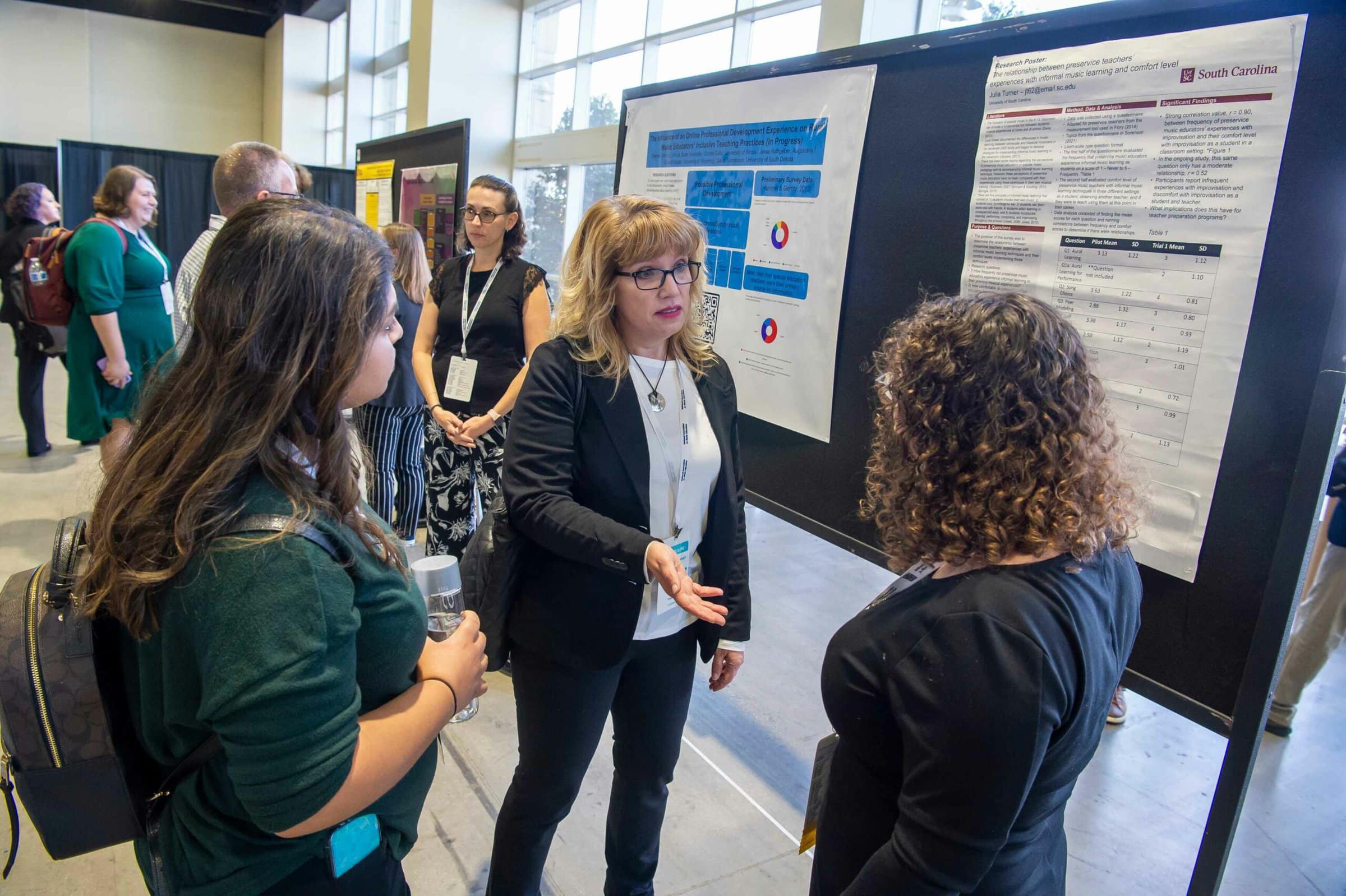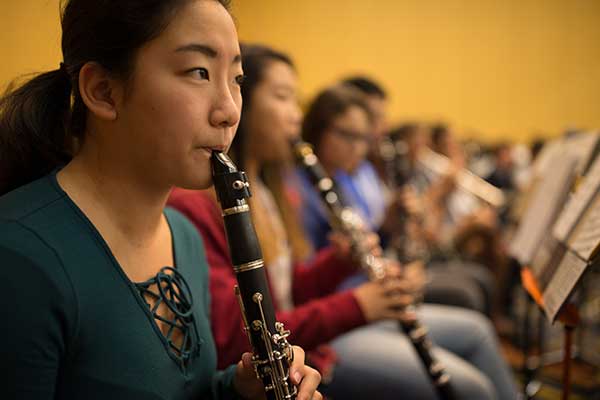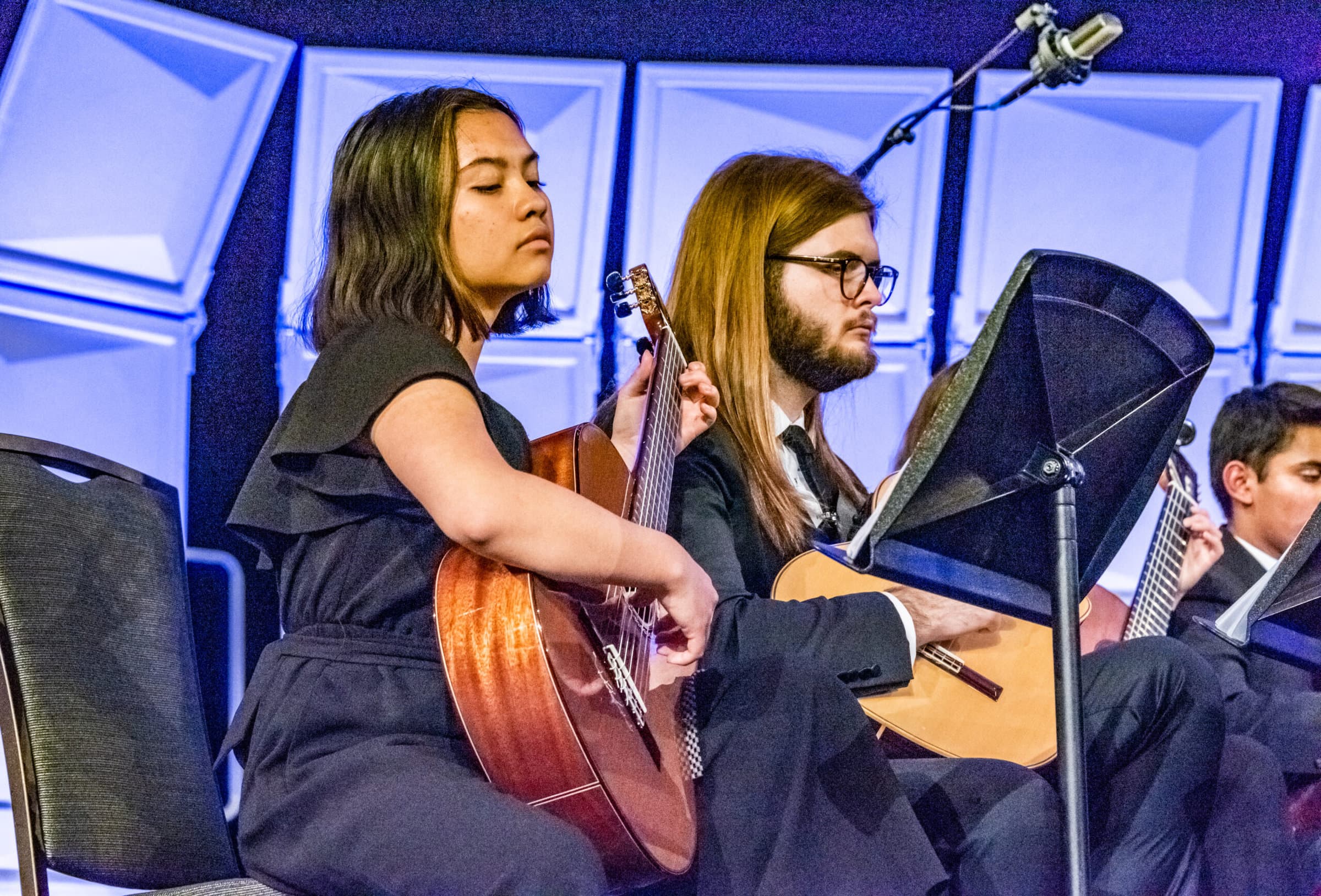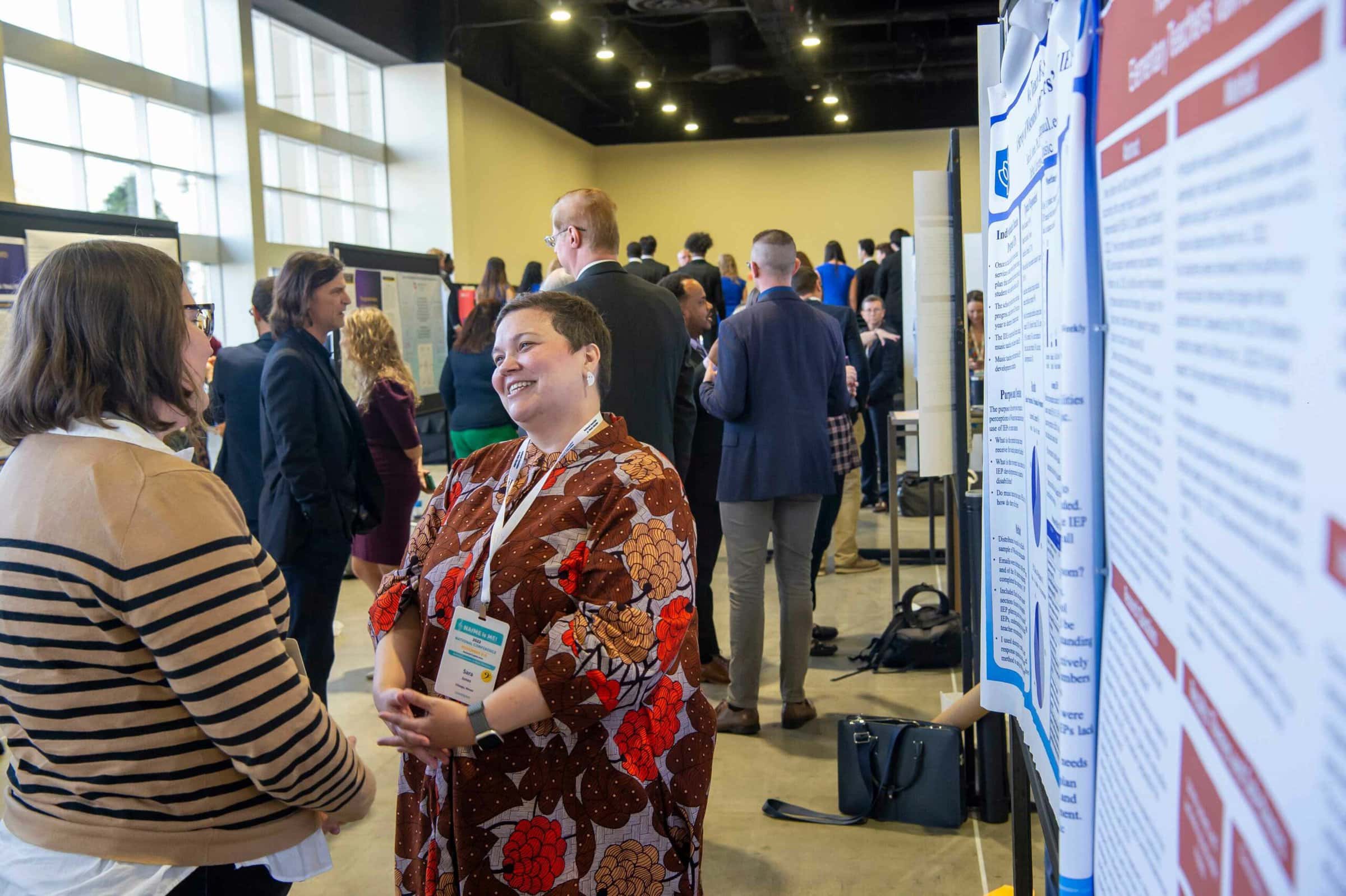Research in Music Education
NAfME believes research is a central component of both the work of the association and our members. Research, in concert with music teacher education, is one of three cornerstones of our Strategic Plan, is supported by two societies, and is highlighted at our biennial music research and teacher education conference.
Learn more about the National Study of Arts Education.

Past Events
Society for Research in Music Education
The National Association for Music Education (NAfME) Society for Research in Music Education (SRME) seeks to encourage and improve the quality of scholarship and research within the music education profession. Visit SRME for information about the Journal of Research in Music Education, Update: Applications of Research in Music Education, SRME/NAfME research grants, Special Research Interest Groups (SRIGs), state research chairs, conference research, senior researcher award recipients, the SRME Handbook, the Code of Ethics, and the SRME Executive Committee.


Society for Music Teacher Education
The National Association for Music Education (NAfME) Society for Music Teacher Education (SMTE) aspires to:
- Improve the quality of teaching and research in music teacher education.
- Provide leadership in the establishment of standards for certification of music teachers.
- Serve as an arm of NAfME in influencing developments in music teacher education and in the certification of music teachers.
Visit the SMTE website for the latest program and event information, Journal of Music Teacher Education, executive committee, Areas of Strategic Planning and Action (ASPAs), and more.
Research Survey Assistance
NAfME provides research survey assistance to student and professional members who are engaged in survey research and whose applications are approved by the SRME Executive Committee. Members may be awarded one request every two years.

Research Survey Assistance from NAfME
Purpose
NAfME has had a long association with the research community in schools, colleges and universities, and through our members who have a keen interest in supporting research efforts in the field of music education. We wish to support those who survey research requires reaching a broad or specific segment of NAfME members. With this in mind, NAfME is pleased to provide indirect access to the association’s membership list using our e-mail transmission platform.
The purpose of providing this assistance is to allow those whose research requires a nationally or regionally representative sample of NAfME members. The majority of our members reside in the United States. Our members represent all interests, specialties, and teaching levels, with experience ranging from the Collegiate and first-year teacher to highly skilled and seasoned professionals. The list is regularly updated.
The purpose of SRME review of all surveys is to make certain that requests are part of appropriate research for educational purposes that will benefit NAfME members, and that proposals have been thoroughly vetted through appropriate institutional review boards. It also is vitally important that all parts of submissions reveal the nature of the task being requested of NAfME members who would receive an approved survey.
This assistance is available for members only. All authors and advisors listed on the survey request must be members in good standing of NAfME (co-authors who are not music educators may be exempt upon request). Members may be awarded one request every two years.
Process
The Society for Research in Music Education (SRME) Executive Committee evaluates proposed research surveys prior to dissemination. Committee decisions are final and review contents are not disclosed. However, if the initial request application is rejected, the applicant may revise and resubmit, once within a 2-year cycle. The review cycle runs September 1 – August 31.
To submit a proposal for a research survey, go to https://openconf.org/nafmeresearch/, and select: ‘NAfME Research Survey’, and then ‘Make Submission.’ You will be asked to provide the following details for committee review:
Researcher Information
- Name
- NAfME ID Number
- Phone Number
- Institution Affiliation
- Professional Status
Additionally, university students will be asked to provide the name, NAfME ID, email, and phone number for their academic advisor.
Content Information
- Project Title
- A single PDF that includes both:
- IRB Protocol (including approval documentation)
- Complete survey form to be disseminated
- Abstract
- Background, Purpose, and Rationale 250-word limit
- Research Question(s) 250-word limit
- Targeted Respondent Population 250-word limit
- Procedures (including contact strategy) 250-word limit
- How would this research benefit the NAfME membership? 150-word limit
Approved Submissions
Decisions on a proposed survey will be rendered between 3-4 weeks after initial submission. Once the SRME review committee has approved a survey proposal, emails can be distributed according to the details provided below. The platform for the survey itself (e.g., Qualtrics, SurveyMonkey, Google Forms) is determined by the researcher.
- Standard Transmission: $50.00
- Includes: Transmission of an HTML or text-based e-mail to 5,000 members or fewer, with up to 2 selection criteria (example: states, teaching levels, etc.), using NAfME’s mass e-mail transmission tool.
- The transmission is sent by NAfME on the individual’s / company’s / institution’s behalf.
- An NAfME staff member will request the text that will be included in your e-mail, and will transfer it to our system. The blast will be sent using a standard NAfME (design) template.
- Minor proofing of design and content is included as part of the standard service.
- Though member e-mail addresses are not provided directly to the client as part of this program, you may elect to forward members to a survey or other related tool, or have replies sent to a specific survey tool, department or staff member.
- NAfME will confirm final cost and request final approval from client prior to transmission.
- E-mails are approved / scheduled as quickly as possible upon receipt of order and payment, based on network availability and NAfME’s email schedule timeline.
- The following disclaimer must be included in the e-blast text: “This invitation is sent as a service to the profession by NAfME, as part of our ongoing efforts to support research in music education. The sending of this invitation does not constitute endorsement of the content or quality of the research project for which this invitation is sent by NAfME or its component Societies or Councils.”
- Regarding Content: NAfME reserves the right to approve ALL content prior to transmission. NAfME will deny requests for transmission of messages/materials which include non-research-related material and/or links to specific product sales pages.
- Additional Services
- Transmission to more than 5,000 members: $25.00 for each add’l 5,000 members (or portion thereof)
- Additional list criteria (in excess of 2 criteria): $10.00 per criteria
- Re-send to original distribution list: $25.00
- Due to the large number of requests for survey assistance, in order to be fair to all sending out surveys and mindful of the number of emails sent to NAfME members, we are not able to accommodate requests for more than one re-send.
- Rush Order (transmission in less than five business days; subject to availability): $50.00
If you have questions, please contact johnd@nafme.org.
